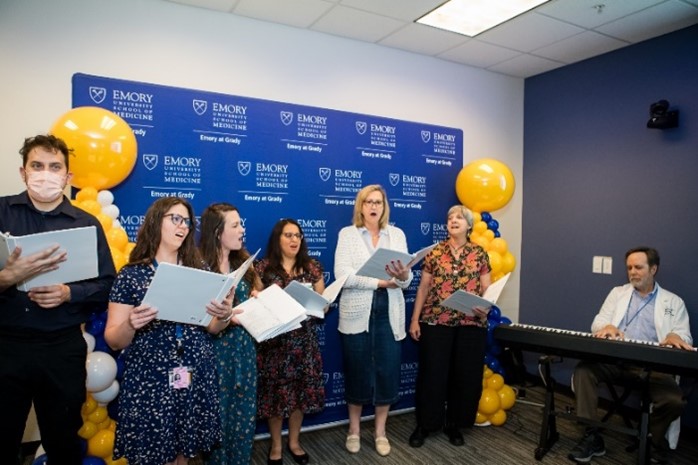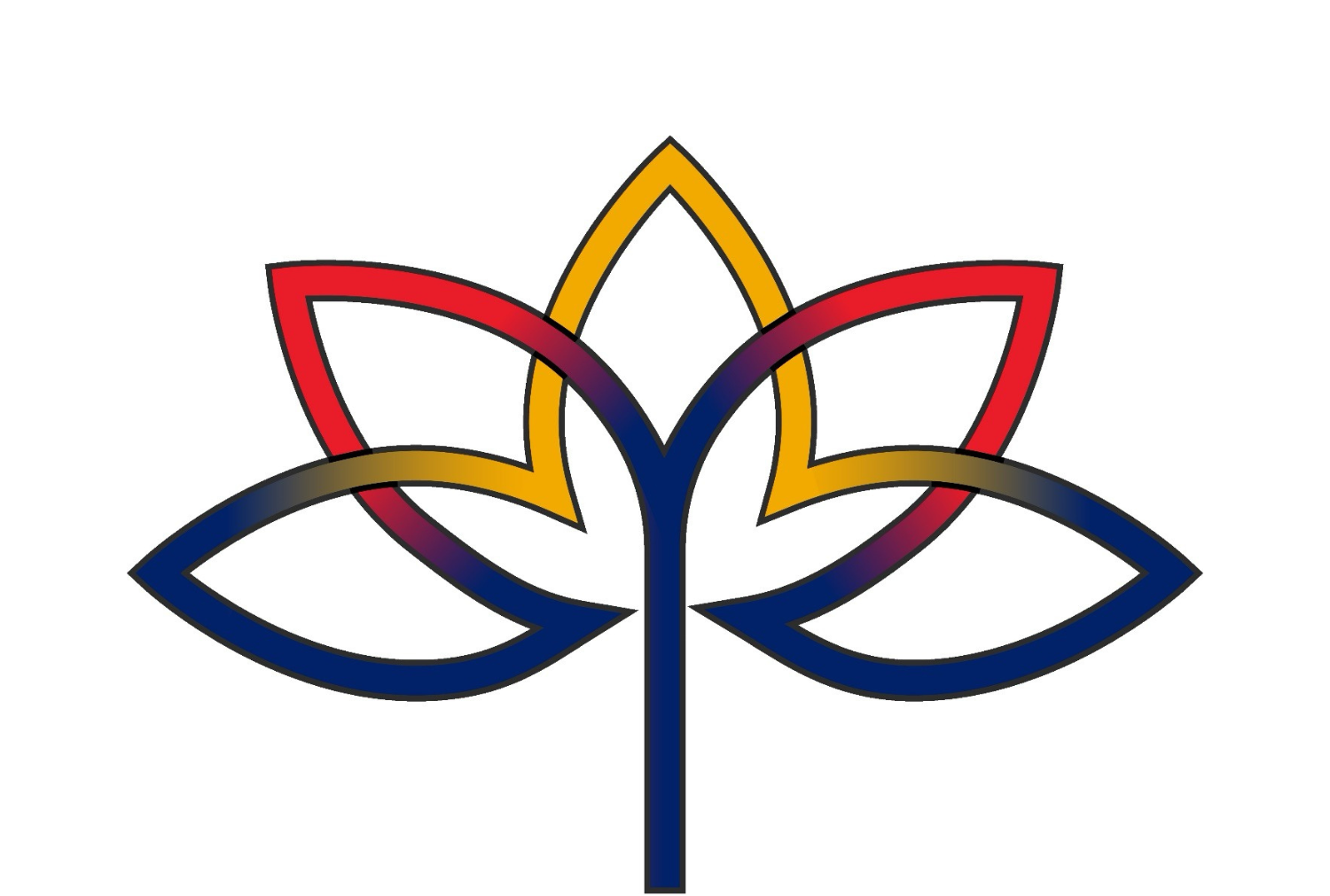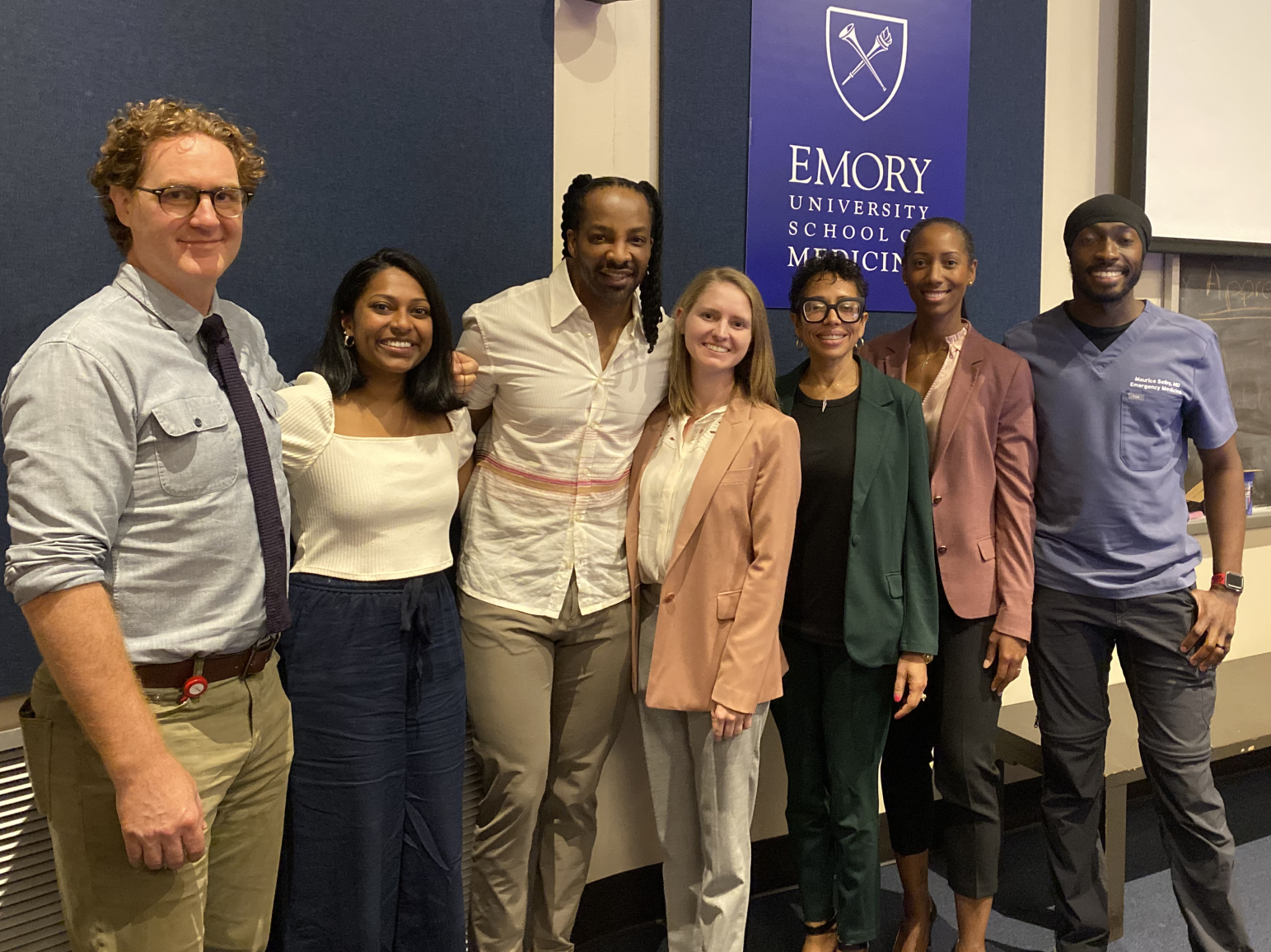Emory Flourishing at Grady is dedicated to creating meaningful programs and initiatives that support faculty, learners, APPs, and staff by fostering wellness, wellbeing, and resilience while building a stronger, more resilient, and more connected community.
Team Debriefing Sessions
Upon request, debriefing sessions are offered to Emory at Grady teams following particularly challenging, distressing, or traumatic events. Led by Dr. Nadine Kaslow, these confidential, facilitated, small group discussions provide a structured, supportive, and informal and safe environment for individuals to process their experiences, share emotional reactions, and foster individual and collective healing. The goal is to help health care professionals address immediate stress and team members' emotional and psychological reactions and needs, strengthen team connections and bolster team functioning, and promote ongoing wellbeing. Team debriefings can be helpful after challenging or traumatic clinical or hospital-related events, significant team stresses or losses, high levels of burnout among team members, and problematic team dynamics, etc.
WeCARE Peer Supporter Program
The WeCARE Peer Supporter Program is a peer-led support network that provides a confidential and compassionate space for colleagues experiencing stress, trauma, or burnout. Recognizing the demands of working in a Level 1 trauma center and safety-net hospital, this program empowers trained Peer Supporters to assist colleagues in navigating challenges through active listening, emotional support, and guidance toward wellness strategies and resources.
Peer Supporters are volunteers from across departments and undergo training in peer support principles, active listening, and resource navigation to ensure they can effectively support their colleagues. Meetings with peers are designed to be non-judgmental and confidential, providing a safe space where individuals can process their experiences, feel heard, and receive encouragement without fear of stigma.
Opportunities to be trained and deployed as Peer Supporters are open to faculty, learners, APPs, and staff who want to support their peers, strengthen the culture of wellness and wellbeing, and promote resilience and flourishing within the Emory at Grady community and beyond.
To access an Emory at Grady Peer Supporter or to be trained as a Peer Supporter, use the button below.
Team Connection Microgrants
The Emory Flourishing at Grady Team Connection Microgrants provide funding for new, innovative, and impactful team-based activities that build team cohesion, improve interpersonal relationships among team members or across teams, increase individual and team-level resilience, and reduce burnout levels across the Emory at Grady community. Microgrants of up to $2,000 will be awarded for team-based initiatives during fiscal year 2026.
The 2025-2026 application is now closed. We are excited to share that 11 teams have been selected to receive funding. A PDF highlighting the funded initiatives is available below. You may also view the original call for submissions to learn more about the goals, eligibility, and selection process.
We look forward to future opportunities to partner with your team to foster connection and wellbeing across Emory at Grady.
Arts Initiatives

Creative expression plays a vital role in wellbeing, stress reduction, and community-building. Emory Flourishing at Grady incorporates arts-based initiatives to foster healing, emotional processing, and connection among all health care professionals.
ArtRounds: “ArtRounds” is a new opportunity to uplift and connect our community through the power of visual storytelling. Developed as a partnership between the Wellbeing, Resilience, and Flourishing and Community and Inclusive Culture pillars within the Emory at Grady Dean’s office, this initiative recognizes the role of creativity in helping us reflect, process, and share lived experiences—especially within the high-acuity environment of the Grady Health System.
We invite faculty, APPs, staff, and learners to submit original artwork, such as paintings, photography, digital illustrations, sculpture, or mixed media, etc., for inclusion in our inaugural exhibition in the Faculty Office Building. This exhibition will be launched with a celebration in February 2026.
Submissions for this first ArtRounds Exhibition will open September 2 and close November 1, 2025.
Participants will be asked to provide a brief biography, an artist statement, and artwork details, along with a photo of their piece. All works must be pre-framed or display-ready, safe for public exhibition, and appropriate for a healthcare setting. Each contributor may submit up to five pieces (via separate forms). A standard liability waiver is required.
Whether you're an experienced artist or someone who finds meaning in creative expression, we warmly invite you to share your work.

Emory at Grady Choir: One of our primary creative initiatives is the Emory at Grady Choir, a welcoming and casual group open to faculty, learners, APPs, and staff who enjoy music and want to contribute to a more uplifting work environment. The choir brings colleagues together to perform at events such as the holiday celebration, faculty receptions, and commemorative gatherings, creating moments of joy and connection.
Beyond these opportunities, we are exploring other arts-based initiatives as avenues for creative stress relief and personal reflection.
Educational Initiatives

The Emory Flourishing at Grady Program offers educational initiatives designed to address timely and meaningful wellness topics for faculty, learners, APPs, and staff. These events are aimed at enhancing awareness, providing practical tools, and promoting a culture of wellbeing across the health care community. Educational initiatives often occur in conjunction with other teams, such as the Emory School of Medicine Office of Academic Affairs and Professional Development. For example, on March 21, 2025, as part of the Professional Development series, there was an event entitled "Promoting Health and Well-Being: Addressing Substance Misuse Among Faculty with Effective Treatment and Support Strategies”. This virtual lecture focused on recognizing warning signs of substance misuse among physicians, understanding barriers to seeking help, detailing intervention strategies, and delineating available support services. Presenters included Dr. Paul Earley an adjunct faculty member in the Department of Psychiatry and Behavioral Sciences and Dr. Janice Harewood and Kristen Render from the Faculty Staff Assistance Program.
Research Initiatives
Supported by a grant awarded by the Emory Medical Care Foundation, Inc. (EMCF), Drs. Malavika Kapuria, James O’Shea, Michael Zdradzinski, Sophie Arkin, and Katherine Kohler, under the mentorship of Drs. Nadine Kaslow, Michelle Lall and Jason Schneider launched a comprehensive survey in spring 2024 to better understand the well-being, sources of stress, and wellness preferences of Emory at Grady health care personnel.
148 faculty, staff, APPs, and learners completed the Professional Quality of Life for Healthcare Workers Scale (ProQOL Health). Survey results indicated moderate levels of personal support, compassion satisfaction, burnout, secondary traumatic stress, and moral distress, with no major differences by professional background. However, some departmental differences emerged in compassion satisfaction and burnout.
The top five contributors to daily work-related stress were: workflow inefficiencies (67%); resource limitations (62%); physical, emotional, and psychosocial stress (47%); ethical dilemmas and moral distress (32%); and insufficient interprofessional communication (30%). The top five preferred wellbeing initiatives identified were: Emory at Grady lounge (52%); access to healthy food onsite (43%); transparent communication between leadership and staff (38%); onsite debriefings for adverse events (28%); and onsite wellness programming (23%).
To build on the survey findings, from October 2024 through February 2025, the research team conducted confidential, one-hour focus groups with 48 Emory at Grady personnel. Three separate focus groups were held for each professional background—attendings, housestaff, APPs, and staff—with participants grouped with their peers to foster open discussion. The focus groups explored deeper narratives around wellbeing, stress, and community needs, providing qualitative data to provide further context to the survey results, and to reveal new themes and wellbeing activities.
Analysis of the focus group data is currently underway. Findings will inform future Emory Flourishing at Grady initiatives and programming, ensuring they are community-driven, responsive to lived experiences, and reflective of the unique challenges and strengths of the Emory at Grady environment.




